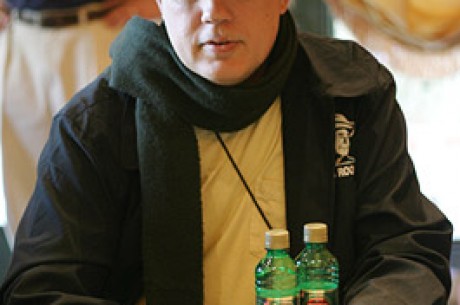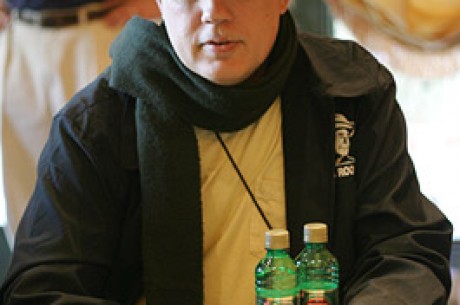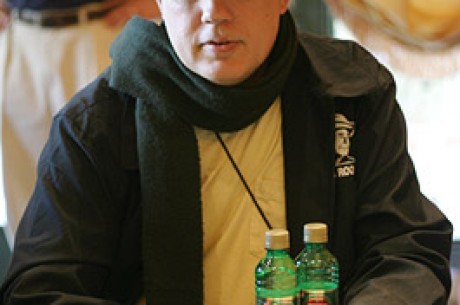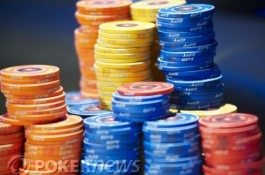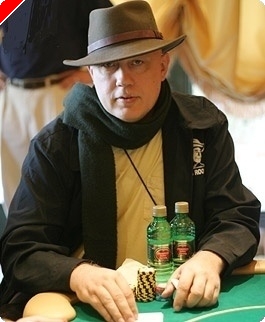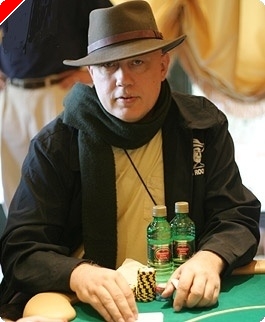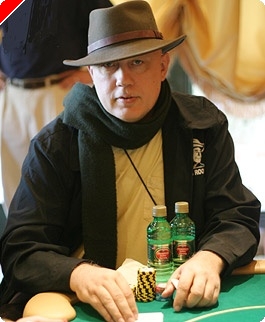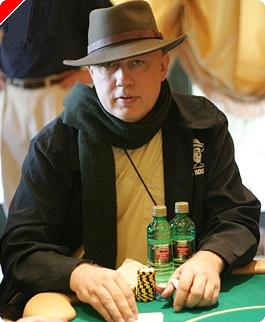Inside The Tour – 57 – Reflections on the 2006 WSOP. part two
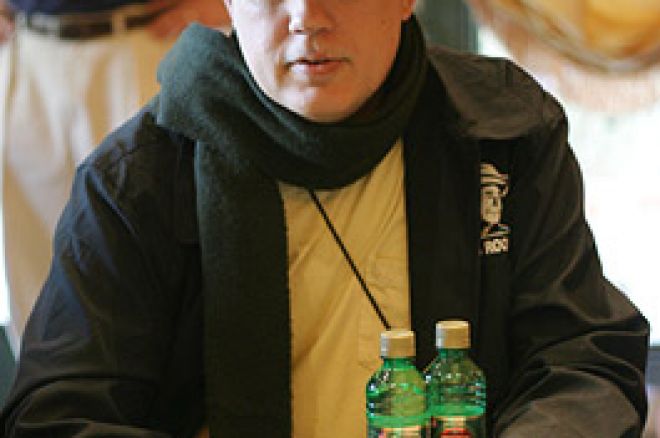
Let me repeat that I am not one that is hoping that a good alternate for the WSOP will arise. Instead I do hope that the Rio and Harrah's management will set things right in the coming years. A lot of what needs to be corrected is mentioned in these columns. I start with the quote below from Blair Rodman;
"I'm trying really hard to find nice things about Harrah's handling of the WSOP, maintain a positive attitude and focus on poker. [...] I've been able push out of my mind my wonderment at what the so-called "Advisory Panel" actually discussed with Jeffrey Pollack. He seemed so proud in the CardPlayer interview that he had addressed and solved the grave issues of more bathrooms and better pizza. Was that really what the panel came up with? There are a whole range of other issues that need to be addressed [...]"
There was a bigger-than-ever fee taken and a number of players told me that they did not play in the 50,000 dollar HORSE event because of the juice (2000 dollars for those keeping track at home!). That same HORSE event should have been a five day event, not one where the players were forced to play until 9am on day two.
I, Dennis Waterman, had decided some time back not to be bothered by petty problems that arise at and around the table and that is why I try to accept the decisions that are made [right or wrong], the exposed cards, the poor procedures, the eleven and ten handed tables, the large number of alternates [what can be done with these huge fields? Two day ones seems wrong for a preliminary event but that is the only solution I can see. Admittedly I can see the problem easier than I can find a sensible answer.], the cheap paper cards, and the bigger opening blinds so that you have only enough chips to play one or two hands in many events.
In one event this year I was at the same table as Phil Hellmuth and after the seventh straight dealer came and got a lesson in 'releasing the deck' he asked to speak to the dealer coordinator and told me that the reason this had not been an issue in the past was that the "champions" corrected all dealers that came to their tables and so by the third day of any series everyone knew how to deal correctly. I think the enormity of this task is obvious with the huge fields of today, as well as the additional problem of a diluted dealer pool.
Steve Z told me three dealer stories of situations that arose in this year's [2006] series. The first two examples he labeled humor, the third one I will have to call incompetence illustrated. A) four hearts came on the board and player one turned his hand face up with AK, two pairs but no heart for a flush. Player two is checking his cards one last time and the dealer says to him, "Do you have a heart?" B) Player one checks the turn after betting the flop and being called with a KTx flop, he bets the river and gets raised by a player that has made a set on the river. He calls and when he sees the bad news he mucks his cards and asks the dealer, "What are you doing to me?" to which the dealer replies, "It is not my fault, if you had bet the turn you would have won!" C) It is the main event and player one bets 8,000 on the flop, player two has a lot of chips and he calls, Artie Cobb now moves all-in for something like 11,500. Player one announces "all-in" also and player two goes into a think. Z, who is not in the hand, says 'dealer it does not matter if the all-in raise needs to be as big as the original bet or not, in this case it is not even as big as half the original bet so player one can only call...' 'he says he is all-in so that has to stand as his bet' the dealer snarls at him. Now player two wakes up and wants a floorperson to come over. The dealer reluctantly calls one and says player one has declared all-in. 'That has to stand.' the floorperson rules. Now player two objects but is not allowed to speak. So now Z explains the situation to the floor and the floor now corrects his ruling to the only option being the call. Players one and two both call. The turn comes and player one moves a bet of 6400 out and player two goes all-in verbally with player one calling. Player one wins the pot and the stack of 6400 is splashed down into the pot and Z injects a 'hold it, the final bets have not been matched,' and the muttering dealer now begins to count the chips by a one hand to her other hand technique. 'No, no,' says Z as he reaches out to stack some chips, "don't touch that pot!" admonishes the floorperson who has stood by to watch this pot since his ruling! Sadly enough I have been in this lose-lose situation more than once.
In the 2005 events there were many examples of the lack of randomness in the seating draws with some players seated alphabetically and others at groups by entry. We hope that this was corrected before the 2006 Series began but as I have previously pointed out that the computers seemed to drop everyone out that registered between three and fourteen days before each event so there are some bugs that need to be removed.
The display screens seemed better to me than in the 2005 Series but they can be improved further. It is also recommended that the breaking order for tables be posted.
I think that playing ten and eleven handed and with only enough chips for a few hands makes it more like a media sprint than the world championship events that are promoted. Blair Rodman has a related view, as the quote below will show;
"I think almost all players dislike playing 10-handed. I've polled many players and have found none that prefer 10. Many are adamantly against it. For one thing, it's very uncomfortable, and that takes a toll on a players' stamina. Modern tournaments with their huge fields are a marathon. It's hard enough without the physical strain that comes from being crammed together. Over the 6-week course of the WSOP, it has a cumulative effect. But, the main reason is how it affects the play of the game. With ten players, the blinds come around slowly. While I agree that patience is a necessary quality, it shouldn't be a prime attribute. The true test of a poker players' skill comes in medium to short-handed situations. With the blinds coming around more quickly, and the average hand value lower, you must get in there and play, rather than just sitting around waiting to trap with a big hand.
I think a prime example was this years' first 6-handed event at the WSOP. There were 824 entries, 2500 in starting chips, and a staring level of 25-25 blinds. Playing 6-handed vs 10-handed, players got to look at a lot more hands at each level. And the short-handed situation compelled them to get involved in more hands. It was, quite simply, better, more exciting poker. Not only that, but these factors resulted in the field being whittled down quickly. At the end of ten levels, there were only 39 players left. [...]"
Blair is not arguing to make all the events six handed, but he is saying that even at nine handed they are much more skillful.
Harry Demetriou's 2005 criticism continues below, but seems relevant to the 2006 WSOP;
[I]"As players we give up 2-3% of every prize pool for the dealers and staff and as such we are paying top dollar for their services. In return for this I expect to get the very best staff which was sadly not the case at The Rio. [...] now every single player leaves a tip in advance and yet we get poor service and little or no say in how things are run. You […] typically[get] an additional 4-6% on top of this for organizing/running the event and as such [I] feel that you should at least consult with the players as we are more than capable of helping you in many areas of tournament organization or in the very least provide you with valuable meaningful assistance. […]
Announcements of total numbers of players for each event along with prize pools and prize structure breakdown were also unnecessarily delayed. As everything is computerised these days it is difficult to understand why this information was not made available […] as soon as rebuy periods and/or registration was closed for each of the events. […]
"When players are getting paid (who are from overseas) some are having money withheld despite a tax treaty being in place between the USA and their country whilst others are given private numbers of tax accountants who charge players 10% of their prize for obtaining ITIN numbers which are freely available from the IRS at no charge. (Very little or no help was given to overseas players in this area whilst from my own personal experiences every single other casino knows exactly what to do in these situations and applies for the ITIN on your behalf and gives you a W-8 form to complete whilst for non tax treaty countries they withhold the relevant amount)." [/I]
This deserves further comment as a number of European players told me that they were allowed to play in events this year (2006) but during the first day they were asked for tax amounts from last year, in amounts as high as 60,000 dollars, and that if they did not pay immediately they would have to forfeit the current event! Wow!
The inability to stick with posted announcements during both WSOP's at the Rio are a matter of grave concern. Events and structures can not be altered on whim or for the convenience of media. In the most whacky of all ways the complete illustration of this is that one bracelet event was added!
This year an open letter from Harry D continues in the same vein;
[I]"[…]Whilst I have no direct opposition to the (re)introduction of a HORSE event (and actually actively personally want and support mixed game events) there should have been something for the ordinary player and as such they should also have had (say) a $5000 event too.
[…] as a European I feel we are being victimised. The Rio/Harrahs's/WSOP seem to ignore us despite our constituting a significant proportion of players. The Bellagio applies and gets ITIN numbers for us whenever we cash and do not withhold if you produce a passport from a tax treaty country. […]
I want to know why ABSOLUTELY NONE of the money from ESPN/Milwaukee Light/Party Poker and any other sponsors is coming back to the players. I think they should at least give us some kick backs in the form of juice free tournaments.
I also want to know why they say they will close out events and then make us play 11 handed and have hundreds of alternates who get introduced to the events several levels into play. […]
Why does it cost less to get a room at Rio when walking in off the street than by booking the poker rate as a player?
Why are photographs of the players allowed to be taken and sold off for commercial profit by people such as Image Masters? [……]."[/I]
And a last quote from Blair Rodman;
[I]"My feeling is that players have a friend and ally in Robert Daily, and he deserves our appreciation and respect. While this doesn't mean that we're going to get soon everything we want or deserve, at least he's in there pitching for us.
Taking it to the next step is our responsibility. All concerned players should join the WPA (World poker Association). There is a tremendous amount of work being done by founder Jesse Jones and others to make this a true tournament sanctioning body that will work to bring about resolutions to the many issues in modern tournament poker. And, unlike some of the other organizations that purport do this, the WPA is completely non-profit and represents the interests of all players, not just the big names." [/I]
Until next time...play good and be lucky!

